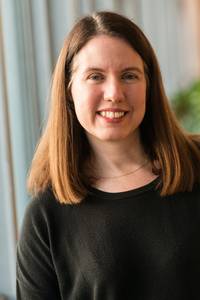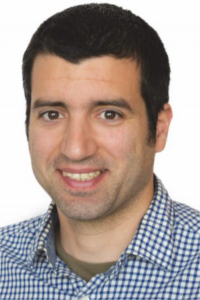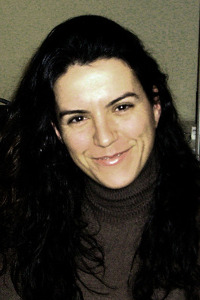Program
| Satellite Meetings | JBI2018 | |||||||
|---|---|---|---|---|---|---|---|---|
| Monday 12th | Tuesday 13th | Wednesday 14th | Thursday 15th | Friday 16th | ||||
| 09.00 | Oncothon | Oncothon | Registration | Keynote #2. María Rodríguez | Structural Bioinformatics & Function / Omics Technologies |
|||
| 09.20 | ||||||||
| 09.40 | ||||||||
| 10.00 | Coffee Break | Coffee Break | Coffee Break | |||||
| 10.30 | Opening Keynote #1. Julio Sáez-Rodríguez | Translational Bioinformatics / ELIXIR-ES |
Closing Keynote #3. Janet Kelso | |||||
| 10.50 | ||||||||
| 11.10 | ||||||||
| 11.30 | Highlights Session #1 | Highlights Session #3 | ||||||
| 11.50 | ||||||||
| 12.10 | ||||||||
| 12.30 | ||||||||
| 12.50 | Companies | Companies | Final Remarks | |||||
| 13.00 | Lunch Break & Posters (odd) | Lunch Break & Posters (even) | Lunch Break | |||||
| 14.30 | NGS Applications. | Highlights Session #2. | ||||||
| 14.50 | Student Symposium | |||||||
| 15.10 | ||||||||
| 15.30 | ||||||||
| 15.50 | Oncothon Results | |||||||
| 16.10 | ||||||||
| 16.30 | Coffee Break & Posters (odd) | Coffee Break & Posters (even) | ||||||
| 17.00 | Ingrative Bioinformatics / Phylogeny & Evolution. | Round Table: "Bioinformatics Challenges for Personalized Medicine" | ||||||
| 17.20 | ||||||||
| 17.40 | ||||||||
| 18.00 | ||||||||
| 18.20 | Remarks | Remarks | ||||||
| 18.30 | Satellite: "Towards a National Professional Bioinformatics Society" | |||||||
| 21.00 | Gala Dinner | |||||||
| Wednesday, 14th/Nov | ||
|---|---|---|
| 09.00 - 10:00 | REGISTRATION | |
| 10.00 - 10.30 | Coffee Break | |
| 10.30 - 11.30 | Opening Keynote: Julio Sáez-Rodríguez
Computational personalised medicine in cancer: from in vitro to in vivo | |
| 11.30 - 12.10 | Highlights Session #1 | Genome Denmark: Sequencing and de novo assembly of the Danish reference genome. José Mg Izarzugaza, Søren Brunak and Danish Pangenome Consortium. Genome Denmark |
| 12.10 - 12.50 | Scutoids, a geometrical solution to three-dimensional packing of epithelia Luis M Escudero | |
| 12.50 - 13.00 | COMPANIES | |
| 13.00 - 14.30 | Lunch Break & Posters (odd submission numbers) | |
| 14.30 - 14.50 | NGS Applications | Precise sample classification of the MetaSUB environmental microbiota using functional biomarkersPhy
Carlos S. Casimiro-Soriguer, Javier Pérez Florido, Daniel López López, Carlos Loucera and Joaquín Dopazo |
| 14.50 - 15.10 |
Identification of RNA-processing prognostic and therapeutic markers in MLL-rearranged infant acute leukemia
Adria Closa, Antonio Agraz-Doblas, Ignacio Varela, Pablo Menéndez and Eduardo Eyras | |
| 15.10 - 15.30 |
Implementation of a Copy Number Variant detection workflow within the URD-Cat pilot project on Personalised Medicine
Gemma Bullich, Steven Laurie, Jordi Morata, David Ovelleiro, Sandra Redó, Ricky Joshi, Cristina Luengo, Leslie Matalonga, Genís Parra, Raúl Tonda and Sergi Beltran | |
| 15.30 - 15.50 |
Cohesin variants SA1 and SA2 play distinct roles in chromatin organization and gene expression required for embryonic stem cell identity
Daniel Giménez, Aleksandar Kojic, Marc A. Marti-Renom, François Le Dily, Ana Cuadrado and Ana Losada | |
| 15.50 - 16.10 |
Improving RNA-Seq germline variant calling within RD-connect consortium
Mattia Bosio, Alfonso Valencia and Salvador Capella-Gutiérrez | |
| 16.10 - 16.30 |
The regulatory genome of drosophila regeneration
Cecilia Coimbra Klein, Elena Vizcaya-Molina, Florenci Serras, Roderic Guigó and Montserrat Corominas | |
| 16.30 - 17.00 | Coffee Break & Posters (odd submission numbers) | |
| 17.00 - 17.20 | Integrative Bioinformatics | Proteome-wide discovery of degrons and analysis of their role in tumorigenesis across cancer types Francisco Martínez-Jiménez, Abel Gonzalez-Pérez and Núria López-Bigas |
| 17.20 - 17.40 | Analysis of Transcription Factor activity patterns in Systemic Lupus Erythematosus Raúl López-Domínguez, Daniel Toro-Domínguez, Jordi Martorell-Marugan, Christian Holland, Guillermo Barturen, Julio Sáez-Rodríguez, Marta Alarcón-Riquelme and Pedro Carmona-Sáez | |
| 17.40 - 18.00 | Phylogeny & Evolution | Intronic CNVs cause gene expression variation in human populations María Rigau, David Juan, Alfonso Valencia and Daniel Rico |
| 18.00 - 18.20 | Recent evolution of the epigenetic regulatory landscape in human and other primates Raquel García-Pérez, Gloria Mas-Martín, Martín Kuhlwilm, Meritxell Riera, Antoine Blancher, Marc Marti-Renom, Luciano Di Croce, José Luis Gómez-Skarmeta, Tomas Marques-Bonet and David Juan | |
| 18.20 - 18.30 | REMARKS | |
| Thursday, 15th/Nov | ||
|---|---|---|
| 09.00 - 10:00 | Keynote: María Rodríguez Artificial Intelligence approaches for personalized medicine | |
| 10.00 - 10.30 | Coffee Break | |
| 10.30 - 10.50 | Translational Bioinformatics |
vulcanSpot: a tool to prioritize therapeutic vulnerabilities in cancer Javier Perales-Patón, Tomás Di Domenico, Coral Fustero-Torre, Elena Piñeiro-Yáñez, Carlos Carretero-Puche, Héctor Tejero, Alfonso Valencia, Gonzalo Gómez-López and Fátima Al-Shahrour |
| 10.50 - 11.10 |
Muscle Invasive Bladder Cancer stratification by genomic architecture Sonia González-Alvaredo, David Juan, Miguel Vázquez, Alfonso Valencia, Francisco X. Real and Enrique Carrillo-De Santa Pau | |
| 11.10 - 11.30 |
The immunogenic impacts of splicing alterations in small cell lung cancer Juan Luis Trincado Alonso, Marina Reixachs, Eduardo Eyras and Jun Yokota | |
| 11.30 - 11.50 |
Network, Transcriptomic and Genomic Features Differentiate Genes Relevant for Drug Response Janet Piñero, Abel Gonzalez-Pérez, Emre Guney, Joaquim Aguirre-Plans, Ferran Sanz, Baldo Oliva and Laura I. Furlong | |
| 11.50 - 12.10 |
Training IBM Watson with MelanomaMine Davide Cirillo, Andres Cañada, Javier Omar Corvi, José M. Fernández, José Antonio López-Martín, Salvador Capella-Gutiérrez, Martín Krallinger and Alfonso Valencia | |
| 12.10 - 12.30 | Special Session: ELIXIR-ES | European Genome-phenome Archive (EGA) - Granular solutions for the next 10 years Audald Lloret-Villas and Jordi Rambla |
| 12.30 - 12.50 | OpenEBench. The ELIXIR platform for benchmarking Salvador Capella-Gutiérrez, Juergen Haas, Vicky Sundesha, Dmitry Repchevski, Javier Garrayo, Víctor Fernández-Rodríguez, Miguel Madrid, Laia Codo, José M. Fernández, Anália Lourenço, J.L. Gelpí and Alfonso Valencia | |
| 12.50 - 13.00 | COMPANIES | |
| 13.00 - 14.30 | Lunch Break & Posters (even submission numbers) | |
| 14.30 - 15.10 | Highlights Session #2 |
SQANTI: extensive characterization of long-read transcript sequences for quality control in full-length transcriptome identification and quantification Lorena de La Fuente Lorente, Ana Conesa, Manuel Tardaguila, Cristina Marti, Héctor Del Risco, Victoria Moreno, Cécile Pereira, Francisco Pardo-Palacios, Ali Mortazavi, Iakes Ezkurdia, Marc Ferrel, Marissa Macchietto, Lennart Martens, Maravillas Mellado, Susana Rodríguez, Michael Tress and Jesús Vázquez |
| 15.10 - 15.50 |
The Module of Personalized Medicine: the pioneer experience of including genomic data into the Andalusian Health System (SAS) José L. Fernández-Rueda, Antonio Rueda, Javier López, Ignacio Medina, Javier Pérez Florido and Joaquín Dopazo | |
| 15.50 - 16.30 | Oncothon Results | |
| 16.30 - 17.00 | Coffee Break & Posters (even submission numbers) | |
| 17.00 - 18.20 | Round Table: "Bioinformatics Challenges for Personalized Medicine" Participants: Alfonso Valencia (BSC & INB), Joaquín Dopazo (FPS), Fátima Al-Shahrour (CNIO) and José Antonio López Escázmez (IBS.GRANADA) Moderator: Rafael Solana Lara, General Secretary of Research, Development and Innovation in Health, Andalusian Regional Government | |
| 18.20 - 18.30 | REMARKS | |
| 18.30 - 19.30 | Satellite: Towards a National Professional Bioinformatics Society | |
| 21:00 | Gala Dinner at CARMEN DE LOS CHAPITELES | |
| Friday, 16th/Nov | ||
|---|---|---|
| 09.00 - 09:20 | Structural Bioinformatics and Function | Somatic and germline mutation periodicity follow the orientation of the DNA minor groove around nucleosomes
Oriol Pich, Ferran Muinos, Radhakrishnan Sabarinatahan, Iker Reyes-Salazar, Abel Gonzalez-Pérez and Núria López-Bigas |
| 09.20 - 09:40 | Adopting structural flexibility to fill the gap between structure and function in lncRNAs
Uciel Chorostecki and Toni Gabaldón | |
| 09.40 - 10:00 | Omics Technologies | PaintOmics 3: a web resource for the pathway analysis and visualization of multi-omics data
Rafael Hernández-de-Diego, Tarazona Sonia, Carlos Martínez-Mira, Leandro Balzano-Nogueira, Pedro Furió-Tarí, Georgios Pappas and Ana Conesa |
| 10.00 - 10.30 | Coffee Break | |
| 10.30 - 11.30 | Closing Keynote: Janet Kelso
The impact and fate of Neandertal DNA in modern humans | |
| 11.30 - 12.10 | Highlights Session #3 | A novel porkaryotic MMR pathway
Ana María Rojas and Jesús Blázquez |
| 12.10 - 12.50 | Loose ends: almost one in five human genes still have unresolved coding status
Federico Abascal, David Juan, Laura Martínez Gomez, José Manuel Rodríguez, Jesús Vázquez, Irwin Jungreis, María Rigau and Michael Tress | |
| 12.50 - 13.00 | FINAL REMARKS | |
| 13.00 - 14.30 | Lunch | |
Invited Speakers
Dr. Janet Kelso

Dr. Janet Kelso is head of the Bioinformatics research group at the Max-Planck Institute for Evolutionary Anthropology in Leipzig, Germany. Her research focuses on comparative primate genomics and ancient DNA with a particular emphasis on analysis of the genomes of archaic humans. Her group has a special interest in the development of novel software for processing and analysis of high-throughput sequence data and uses computational approaches to gain insights into genome evolution. Janet received her PhD in bioinformatics from the South African National Bioinformatics Institute at the University of the Western Cape under the supervision of Professor Winston Hide developing an ontology for classifying gene expression data for which she won the L'Oreal women in science fellowship. She is author of more than 80 peer-reviewed scientific publications. Together with Alfonso Valencia, Janet is the co-Editor-in-chief of the journal Bioinformatics, and also an editor of the journal Database.
Janet is an active member of the Board of the International Society of Computational Biology. She has held positions as both Vice-president and Secretary, and was named a Fellow of the Society in 2015.
Dr. Julio Sáez-Rodríguez

Dr. Julio Sáez-Rodríguez is since June 2018 Professor of Medical Bioinformatics and Data Analysis at the Faculty of Medicine of the University of Heidelberg. He is an affiliated member of Sage-Bionetworks and a director of the DREAM challenges to catalyze the development of methods in systems biology, and the scientific coordinator of the EU-H2020 PrECISE (Personalized engine for Cancer integrative study and evaluation) consortium. He obtained his PhD in 2007 at the University of Magdeburg and the Max-Planck-Institute. He was a postdoctoral fellow at Harvard Medical School and M.I.T., and a Scientific Coordinator of the NIH-NIGMS Cell Decision Process Center. From 2010 until 2015 he was a group leader at EMBL-EBI with a joint appointment in the EMBL Genome Biology Unit in Heidelberg, as well as a senior fellow at Wolfson College (Cambridge). From 2015 to 2018 he was professor of Computational Biomedicine at the RWTH Aachen.
His group develops and applies computational methods to acquire a functional understanding of signaling networks and their deregulation in disease, and to apply this knowledge to develop novel therapeutics. To this end, his group collaborates closely with experimental groups and pharmaceutical companies. More information at www.Sáezlab.org.
Dr. María Rodríguez Martínez

Dr. María Rodríguez Martínez is the technical lead of the group of Systems Biology at IBM Research - Zürich. A physicist by training, she did her PhD and a first postdoc in High Energy Physics at the Institut d’Astrophysique de Paris and Hebrew University respectively. In 2006, she transitioned into Systems Biology as a postdoc at the Weizmann Institute of Science and later at Columbia University. Her training was supported by a number of prestigious fellowships, among which: EARA Marie Curie Visiting Fellowships, Cambridge (UK), French Ministry of Research Fellowship, (France), Higher Education Teaching Initiation Fellowship, France, Lady Davies Fellowship, Jerusalem (Israel), etc. She also had extended academic visits in prestigious universities: Caltech, New York University, The University of Texas, Univ. of Cambridge, etc.
Since 2013 she is a member of the Systems Biology group at IBM Research – Zürich, and an associated member of the Department of Biology at ETH since 2014. Her current research focuses on the development of computational and statistical approaches to unravel cancer molecular mechanisms using high-throughput multi-omics datasets and single-cell molecular data. In recent years, her team has focused on the development of mathematical and statistical models to unravel cancer evolution mechanisms, to develop new approaches for data integration and for the analysis of single cell data. She is currently the technical coordinator of an H2020 grant, PrECISE, focused on developing personalized medicine approaches for prostate cancer patients.